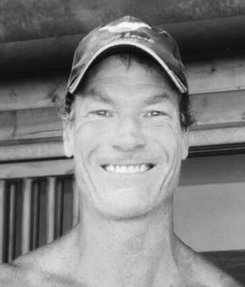Why I had my medical licence revoked
Unfiltered sat down with Dr Shawn Baker, MD, author of The Carnivore Diet, to discover the real reason he was stripped of his license to practice medicine, how he fought to overturn the decision, and why he’ll never return to his highly-lucrative work as an orthopedic surgeon.
This transcript has been taken from our video interview with Dr Shawn Baker, MD. It has been edited for clarity and brevity. You can watch the full video interview here.
Your medical licence was revoked in 2017 but that decision was overturned in 2019. What happened? And would you ever go back to medicine?
I was incredibly naive in my thought of how medicine works. I thought you do the right thing and you were rewarded for that.
But what I found out, very painfully, was that if you’re advocating for for health and lifestyle and it’s impacting the bottom line of the corporation or hospital and they’re losing money, then they’re not interested in that. And that’s the whole crux right there. So now I don’t want to go back to that.
I hope that I never have to go back to to operating on people again because that would mean I failed on this new task, which I think is more important
Dr Shawn Baker, MD
What was the reason for your medical licence being revoked?
This is going back to like 2015, I think. I was Head of Orthopaedics at a hospital. I was incredibly busy. I was the hospital [poster boy]. They put me radio shows, they promoted the hell out of me. I was doing more surgeries than anybody else in the whole hospital.
And then I had the audacity to start playing with my own diets and figuring out how it helped me. Then I started to approach patients about making dietary shifts purely for the reason so I could do surgery, because they were obese and [if they lost excess weight] they would have less complications.
What I started to notice, many times, even in the absence of any significant weight loss, was that their pain would go away. So the reason for surgery would go away. I’d schedule someone to replace their knee in six weeks, so I’d tell them to go and lose 20lbs (9kg). They’d come back two weeks later and say they [their knee] wasn’t hurting any more.
I’m like, that’s weird. Well, if it doesn’t hurt, we’re not doing surgery on you. So I start cancelling surgeries. And then as I saw more and more [patients’ pain go away] I realised that there’s something here.
Maybe we can have these people avoid really big procedures that that have the potential for complications. And I approached the hospital administration and said “hey, guys, I would like to spend, you know, half a day a week just, you know, counselling patients on lifestyle stuff”. And they said “that’s a good thought, but no, we don’t want you to do that.”
To me, that’s really strange. So I did it anyway. And then all of a sudden I get this so-called peer review thing and they basically suspend my ability to practice because hospital peer review is a protected process. You have almost no rights during that process. I could not even see the data they were using to incriminate me.
All-in-all it took like two years to resolve. Even though [the final decision] meant I was fine to return, by then I was doing all these other things and I was happy where I was at. That’s the overview of that story. But you know, I hope that I never have to go back to to operating on people again because that would mean I failed on this new task, which I think is more valuable and more important.
Also I think I’m honestly better at. I thought I was a pretty good surgeon, but I think I’m better at what I do now.
What I do is unique in a way, and I think I’ve got a skill set for this. I’ve got the experiential knowledge and observation and maybe leadership qualities that put me in a role that I’m a little better created for. And so I’m just discovering a little bit later in life that this is my – if you want to call it a calling – calling, so to speak.





